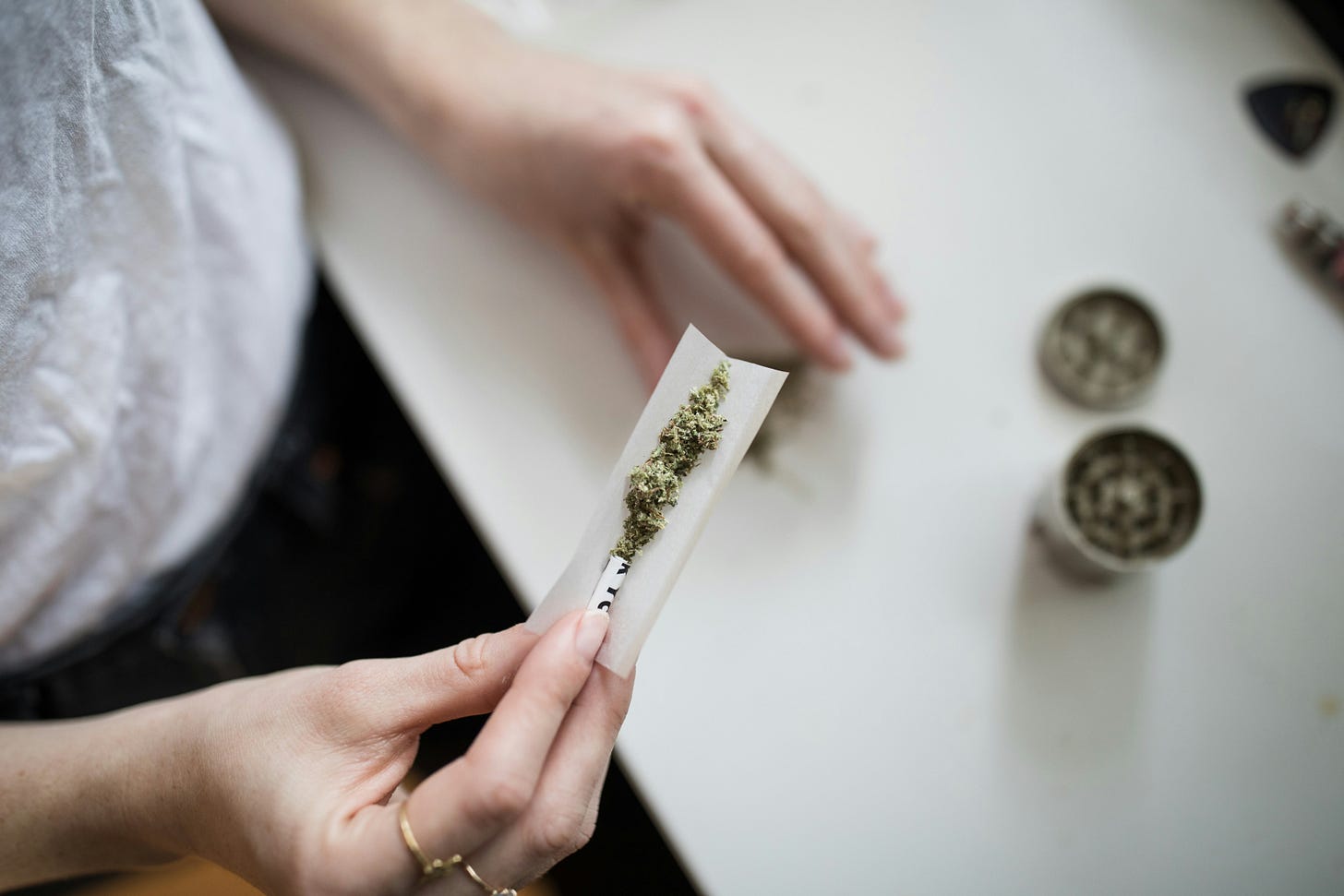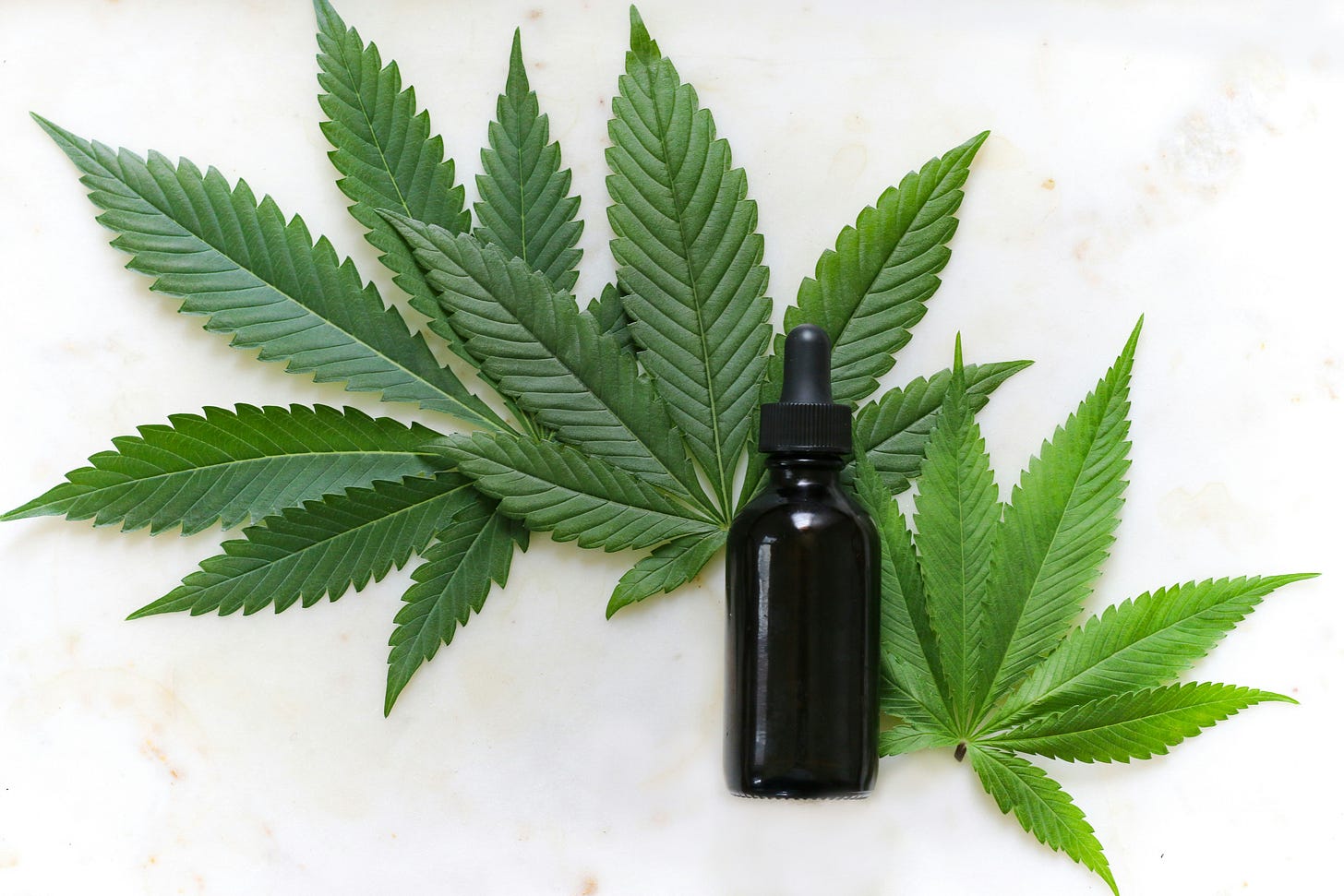Is Cannabis Gluten-Free?
A celiac's guide to weed for 4/20 and beyond
Prior to my celiac diagnosis, I enjoyed an edible from time to time. Now, I have to be careful when shopping at my local dispensary since edibles often come in the form of gluten-filled foods, like gummies, cookies, and brownies.
So, what’s the deal with cannabis—and how can you consume it safely as a celiac? Ahead, I’m breaking down everything you need to know about weed for 4/20 and beyond.
Table of contents:
Is cannabis gluten-free?
Cannabis is inherently gluten-free. “In its purest form, cannabis is naturally gluten-free,” explains Ken Tobby, bromatologist (aka food scientist) and CEO of Organic Solace.
There are two types of the Cannabis sativa plant: marijuana (where THC, the psychoactive compound in weed is found) and hemp (where CBD, the non-psychoactive compound in weed is found). The Cannabis sativa plant doesn’t contain any gluten, a protein found in wheat, barley, and rye, says Tobby.
Are edibles gluten-free?
“Some, but not all, edibles contain gluten,” says Parker Lane, RDN, owner of Fig Lane Nutrition. Edibles come in the form of things like cookies, chocolate, gummies, and even drinks, all of which may contain gluten.
“Cookies and many other baked products usually utilize wheat flour, one of the main sources of gluten, while certain gummies and chocolates might contain gluten-containing flavorings, thickeners, and other additives,” explains Tobby.
What’s more, Lane notes that cross-contact can happen if edibles are made on the same surfaces or equipment as other products that contain gluten.
How can you tell if edibles are gluten-free?
Unfortunately, the package labeling on edibles aren’t regulated by the Food and Drug Administration (FDA) the way food packaging is, says Lane. “That means there’s no standardization or requirement of noting ingredients,” he says. There also doesn’t seem to be any gluten-free certifications for testing cannabis products in the US, he says.
That being said, some edibles do list their ingredients. “Checking this can help you determine if there are any obvious ingredients containing gluten,” says Lane. Some edibles will also have a gluten-free label on them, which is a good thing to look for if you have celiac disease, adds Tobby.
“The best thing you can do is choose edibles from trusted brands that mainly specialize in allergen-friendly or gluten-free products—and when you're uncertain, confirm with the manufacturer,” says Tobby. (Another safe option: making homemade edibles using gluten-free ingredients, he says.)
Something else to keep in mind: You won’t be able to determine the risk of cross-contact unless you do more research and contact the brands, says Lane.
What are the best gluten-free edibles?
There are many reliable brands that offer gluten-free edibles. Three brands I like:
“It's vital to always check the product's packaging to make sure the edible is gluten-free since formulations might change with time,” says Tobby.

Can cannabis help ease celiac symptoms?
There’s no evidence cannabis treats celiac disease symptoms. As research published in the Expert Review of Gastroenterology & Hepatology notes, cannabis could be helpful for certain symptoms of gastrointestinal disorders, but there’s a lack of clinical studies to prove efficacy and safety.
That said, studies do show cannabis can generally help ease anxiety, inflammation, and nausea—all symptoms celiacs may experience when eating gluten. That means it could have potential benefits if you get glutened.
“If a person with celiac disease unintentionally eats gluten, cannabis—particularly products rich in THC and CBD—can help relieve gastrointestinal discomfort and nausea,” says Tobby. “Again, cannabis often has anti-inflammatory qualities, which can help in mitigating various immune responses triggered by exposure to gluten.”
Still, Tobby says more research is needed in this area—and you should always check with your healthcare provider before using cannabis as your main treatment option. It’s also important to know there are short-term and long-term side effects you might experience when using cannabis.
Do you have any favorite gluten-free edibles? Have you tried cannabis to relieve celiac symptoms? Drop a comment and let me know!
Sources
Ken Tobby, food scientist and CEO of Organic Solace
Parker Lane, RDN, owner of Fig Lane Nutrition
Food Safety Magazine. Packaging and Labeling Requirements for Cannabis-Infused Edibles. https://www.food-safety.com/articles/8796-packaging-and-labeling-requirements-for-cannabis-infused-edibles
Expert Review of Gastroenterology & Hepatology. 2017 Apr;11(4):329-337. “Cannabinoids for treating inflammatory bowel diseases: where are we and where do we go?” https://pubmed.ncbi.nlm.nih.gov/28276820/
Psychiatry Research. Volume 339, September 2024 116049. “Therapeutic potential of cannabidiol (CBD) in anxiety disorders: A systematic review and meta-analysis.” https://www.sciencedirect.com/science/article/pii/S0165178124003342
Frontiers in Pharmacology. 2022 May 9;13:908198. “Medical Cannabis Activity Against Inflammation: Active Compounds and Modes of Action.” https://pmc.ncbi.nlm.nih.gov/articles/PMC9124761/
Journal of Clinical Gastroenterology. 2022 Apr 1;56(4):331-338. “The Effectiveness of Common Cannabis Products for Treatment of Nausea.” https://pubmed.ncbi.nlm.nih.gov/35258504/
National Institute on Drug Abuse. Cannabis (Marijuana). https://nida.nih.gov/research-topics/cannabis-marijuana




